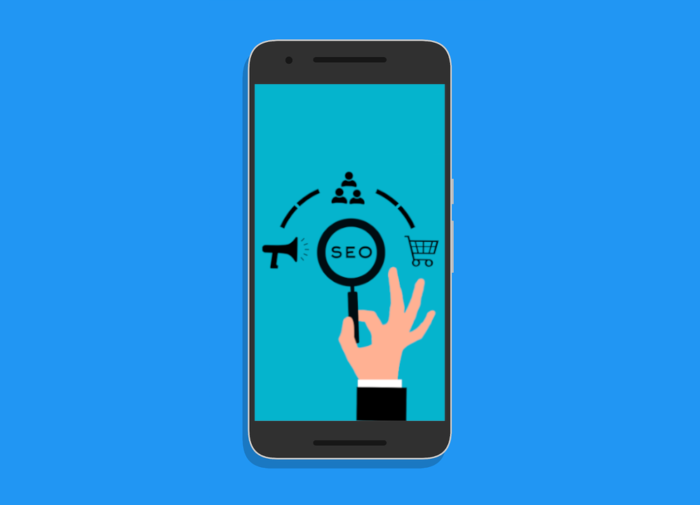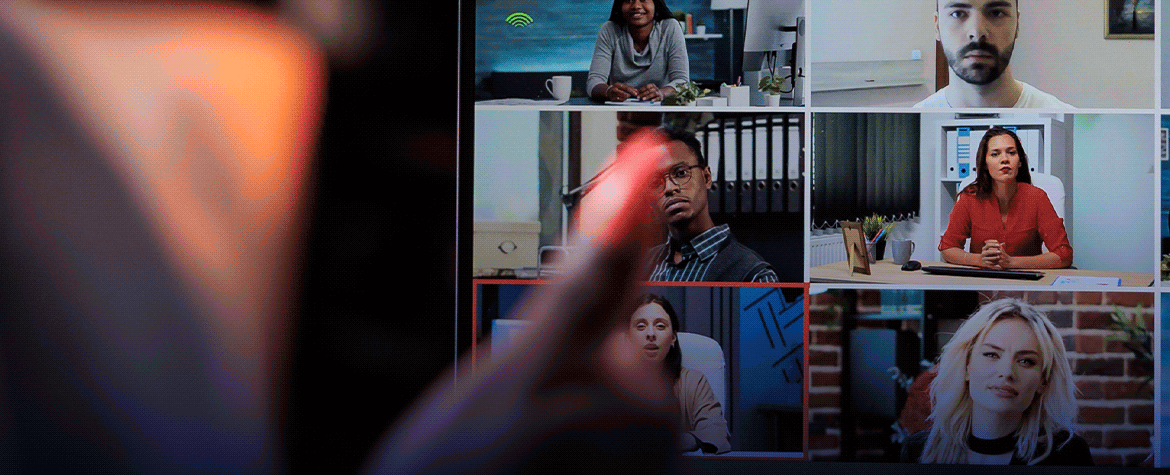Getting an event off the ground can be tough work, especially when it comes to attracting the right crowd. Event marketing has become more important than ever, especially in light of new digital models and promotion techniques. Aside from physical attendance, event marketing has also evolved to incorporate online events, virtual forums, and streaming as well. This article will cover some of the main things you need to keep in mind when marketing different types of digital events and will provide a basic but easy event planning workflow for the promotional side of things.
Types of Digital Events
There are many types of digital events. While many events are streamed or conducted via live feeds, some events do not even have direct human participation (virtual conventions or VR conferences). Furthermore, digital events can even encompass text-based live forums, 3D animated or VR events, and in-game tie-ins (like the concerts held on Fortnite).
Here are 3 broad media avenues for digital events:
- Streaming only: This category entails any event that happens only on webcams and/or online streams. There is no live audience present but there can be digital 2-way communication like reactions or instant messaging.
- Hybrid: These events utilise a live audience and an attending audience. Such events have become more common as the pandemic continues, making use of live venues with digital streaming.
- Virtual: Aside from VR conferences, this also includes events using digital booths and events within computer programs. This would be any event where a person is entering a digital simulacrum. They often involve web-based programs or apps, but can also happen through VR. Companies have held conventions and conferences on websites in this style, and games like Fortnite have run entire concerts on online game servers. Another example is the GROW Europe event Hubspot organised online, which was a tradeshow that took place entirely in a virtual, Sim City-esque digital city with each building representing a different company’s booth.
Event Categories
Events can come in various categories that detail their purpose. There can be nearly endless numbers of events if one were to get specific. However, there are broader categories that encompass most types of digital events. Although some of these categories overlap, they have distinct differences worth mentioning.
- Virtual Conferences or Roundtables: This term can encompass many types of live gatherings. The term is also useful because it can encompass multimedia communications (using text messaging, video presentations, and live-streams altogether). Usually, these take place on event stages but companies like Facebook have been integrating virtual elements like VR as well.
- Webcasts: Webcasts differ from webinars and virtual conferences in that they have to be broadcast (emphasis on broad). This means they are accessible without any software like Zoom or Google Teams. This makes them far more accessible to the general public, like a YouTube live stream.
- Webinars: These are usually more planned than virtual conferences and often involve educational purposes. Common staples include presentations and slideshows, which often means the use of specific software like Google Teams. While there is a lot of overlap with virtual conferences, the main difference is that these often involve fewer audience members. Events of this type can offer increased interaction, much like digital classroom lectures.
- Virtual Trade Show/Event: These are generally far larger events in terms of scale, like trade shows or concerts. Some tradeshows or events are merely live-streamed but others can be fully virtual, not even requiring a physical space. Fully virtual trade shows can incorporate web design in interesting ways, utilising technology to create virtual booths for companies in place of real convention areas.
Advertising or SEO For Events?

It’s never a question of SEO or advertising since you have to use both. However, event SEO is more useful in certain instances, while digital advertising can be more effective in others, and knowing when to use them is more crucial. We’ve dealt with this issue in detail in a previous article about trends in event promotion.
Events are often one-offs, so in these instances, the focus should probably be more on digital advertising. SEO also takes a longer time to obtain meaningful results, so it may not even be an option depending on the timescale. Still, SEO practices should not be abandoned just because they’re slower.
Event planning services and venues could benefit from SEO for their own business and utilize online ads for their clients. Of course, both are necessary for different purposes along with a range of other marketing techniques. If you can spare the money, you can hire an external agency (like ours) to handle the rigamarole of matching content, SEO, and advertising.
If you’re planning on doing it yourself, here are some digital marketing and event planning tips and techniques, along with where they can come in handy:
Event Marketing through Online Ads
Online advertising is a great tool for attracting crowds to any one-time event. The more specific the product or service, the more useful such ads become.
Online advertising can find the audience more effectively than most other forms of promotion. A concert featuring a specific band, for example, can leverage its status directly in a way that SEO and more passive measures can’t. Ads are better at finding people and matching their consumer profiles to characteristics while SEO often requires audiences to look something up.
Aside from attracting customers, online ads are a great way to encourage interest in an event or venue. Recurring advertisements, even if they don’t convert to sales, build brand image. Similarly, social media ads can be a great way to attract people to a Facebook group so that they can stay up to date on future events.
Video ads are most receptive according to research. However, this can depend on where you plan to advertise. The Google front page may require text and images, but on social media, video is king. The multimedia format has many advantages. For example, showing concert footage to tease the event can also let viewers get a feel for the type of music that will be on display.
Event Marketing For Venues
Recurring events (particularly those that happen monthly or weekly) benefit far more from SEO. This is also true of venues that host events. As long as these hit certain keywords people may be searching for, they can continue to attract organic traffic.
SEO and online ads tend to attract customers with different buying behaviours. Customers with a higher purchase intent will gravitate towards online ads with a direct message. However, SEO can be great for less defined types of intent such as people who are looking for an event in their local area but are unsure of what they precisely want. For example, someone might just prefer to look for a dance club and go to the first one on Google Maps.
Venues and recurring events can also benefit greatly from mailing lists. For event planners, advertising and Email marketing can be effective means of retargeting and remarketing with the use of pre-existing customer lists. An effective way to follow up with older customers is to create a newsletter or return customer discount scheme to attract their interest.
Mobile Advertising Events & Social Media

Any event promotion design needs to consider the possibilities mobile devices present. Not only are a growing number of people accessing your pages and sites with mobile devices, but they are also tweeting, Instagramming, and much more. These can be leveraged to create your own user-generated guerilla marketing.
Use the right hashtags, ask questions, set up installations that make them take pictures, or create a contest that makes them share your event. Sometimes people will do the marketing for you if you give them some irresistible value proposition. Everyone has a marketing device in their pockets waiting to be utilized.
Mobile devices also allow for a lot more cross-application sharing. If you create a Spotify playlist for a concert, for example, people can share it through Instagram. Similarly, TikTok can allow for some interesting co-creation possibilities if you come up with a great prompt for users to play with. Get creative!
Make sure to format each image to the appropriate size of the platform. Instagram and TikTok prefer vertical photos but websites and Facebook tend to operate more with landscape photography.
Event Marketing Techniques for Maintaining Customer Focus
Focus is a difficult thing to maintain in the digital age. With 100s of things distracting people constantly, even if customers are interested they may forget or lose interest. Unsurprisingly, many more people declare interest in an event than actually end up attending. This is why marketing is rarely a one-and-done deal, but rather a sustained effort towards maintaining consumer focus.
It can be difficult to keep people engaged in the lead-up to an event. One way to remedy this is to start a social media event countdown to keep people engaged. This could be done by utilizing email or ephemeral content like Instagram or TikTok stories. In particular, it would be useful to aim for countdowns that ask for customer engagement, like polling or questions.
Holiday or special event advertising is especially potent. Christmas, Halloween, or Valentine’s day events practically promote themselves. However, holidays are a double-edged sword since they also mean far more competition. Get in early and try to keep people focused through reminders and emails.
Live Event Production & Streaming
Video recording for live events has become a must-have but the scale of recording can vary. Basic promotion can be done through things as simple as Instagram or TikTok. These work particularly well for music event promotion, since both these platforms are geared towards short, ephemeral content that plays well with visuals and sounds.
Live-streaming an entire event or tradeshow requires a far more elaborate toolkit. It would be useful to hire an event planning service but if that isn’t available, here are the basics:
- Choose your type of event: is it hybrid or live-stream only?
- Pick a medium and platform: Your choice of medium must be based on the purpose of the event. Event streaming platforms can be open access (Youtube or social media) or closed (Zoom, Teams etc.). You should base these on the type of event and clientele.
- Get the appropriate equipment: finding a more powerful event stream processing architecture might be worth considering if the scale of the event requires it.
- Monitor your feed: Aside from keeping track of the video feed, keep an eye on social media. How you receive the video and audio may not be how audiences are receiving it. Have someone check in on the quality from an outside perspective.
Presented here, are just some of the ways digital marketing and event management can enhance each other’s efficiency. Hopefully, this checklist can help you make your next event a roaring success.


